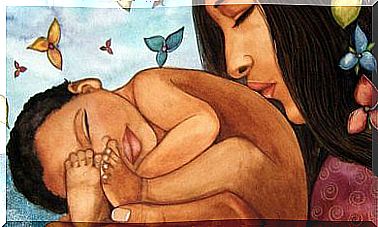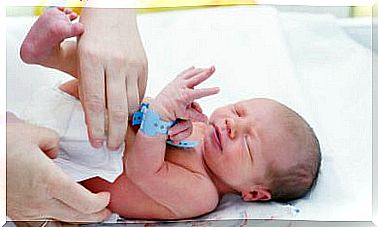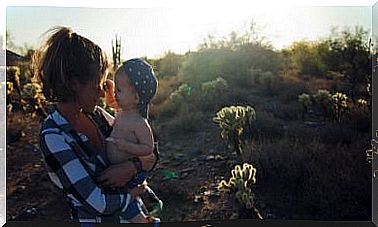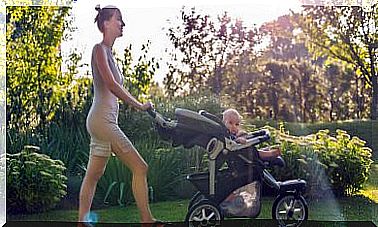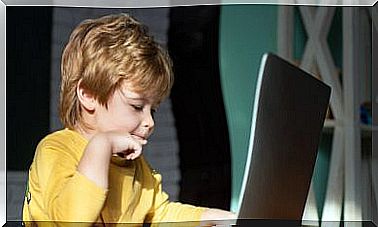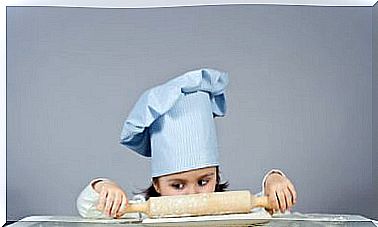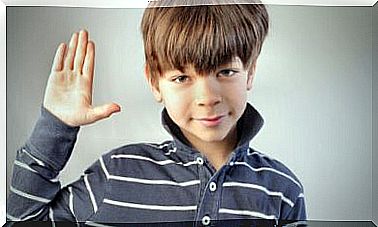Hugging, Comforting And Caring Is Not Spoiling, It Is Also Educating

Spoiling has nothing to do with comforting, with attending to needs, with quenching fears or nurturing with hugs or caresses. Whoever “badly breeds” is the one who ignores and abandons, who makes the mistake of thinking that the mind of a baby is like that of an adult who understands manipulation or blackmail.
In an interesting study on affective intelligence It was shown that what babies experience the most throughout the day is psychological pain. Much more than physical pain. It is undoubtedly a detail that is worth taking into account: the emotional suffering of the little ones has to do with factors such as hunger, fear or the feeling of insecurity.
They are instinctual factors that imply a genuine discomfort, and this is something that each child will demonstrate in a particular and different way from the others. There will be babies more demanding than others and therefore, as mothers, we have to understand the particular reality of each child, knowing that whoever attends to needs does not spoil. That offering security and strategies is educating.
We invite you to delve into this topic that sometimes raises some controversy.
Comfort, the art of understanding needs
If a friend of ours cries, we don’t let him do it until he runs out. If our partner, our sister or our father cry, we do not leave them in a room until it passes. Why should we also do it with our children?
Consoling is the exceptional art of knowing how to intuit needs and knowing how to deploy adequate care strategies to heal those psychological or emotional pains. For this reason, sometimes, it is not enough to say “calm down, nothing happens”, for a small child what confers the greatest power of comfort is physical contact and that tone of voice capable of speaking calmly and closely.

They are small things that generate authentic imprints in the brain of a maturing baby and where any stimulus, as well as any deficiency, will determine its later development. Let’s see more aspects of interest.
The wisdom of “well-being”
The terms are important in our language, but sometimes the most popular expressions tend to always see pathological behaviors where there are only natural processes. It is quite possible, for example, that you have also found yourself in the situation of having to endure the comments of your friends or family when you hold your children to alleviate their crying or anger.
“You’re spoiling him,” they tell us. We keep quiet knowing that this is not the case, because we understand that positive reinforcement at the right moment prevents tantrums, reduces stress and makes our children feel more secure to explore their environment at their own pace.
- The wisdom of well-being knows that the consequences of prolonged and unattended crying bring unwanted effects. From a neurological point of view, what causes stress is, and a high level of cortisol alters the chemistry of neurotransmitters, intensifies fear and a greater need for attention.
- The wisdom of well-creating knows that comforting, hugging and “being present” improves the bond with our children. Our children will need this secure attachment throughout their first three years. It is a stage where their vital needs are usually simple but essential: security, affection, recognition and enjoying enriching stimuli with which to promote neuronal connectivity.
A child who is allowed to cry until he is exhausted or who does not receive hugs or caresses is a baby who builds an idea of the somewhat hostile world, a scenario from which he will “always be waiting for things”, a world from which to defend himself at times with anger, or from which to expect reinforcements with which to find himself.
It is not the right thing to do.
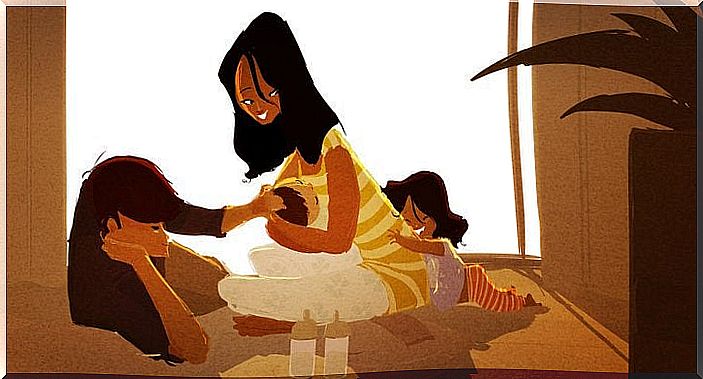
Promote emotional development to help grow
Emotional education does not begin when a child is already competent when it comes to communicating, when we have to set rules, set limits and negotiate rules. An eight-month-old baby who pulls our hair when angry is a person who seeks to channel his anger and frustration.
- Emotional education starts from the first day we put our baby in the crib after arriving from the hospital. After giving birth. We cannot forget that the first emotional anchoring originates as soon as birth, with that first skin-to-skin contact between the baby and its mother.
- Breastfeeding is a wonderful pillar to continue building that bond that transmits security, calm and well-being. Later, the art of respectful comforting will allow you to continue to grow in confidence.
- Addressing negative reactions is not spoiling either. The two-year-old child who throws a toy on the ground in anger or scratches his brother or mother hides an emotion that overwhelms him and that he must know how to channel, understand and manage.

The task of understanding emotions and working on them is something that requires patience and intuition, something that we should never overlook “just because they are small.” The small things of now can transform into great abysses tomorrow, therefore, it is necessary that we pay attention, that we feed them with positive emotions by putting into practice the art of well-being.

